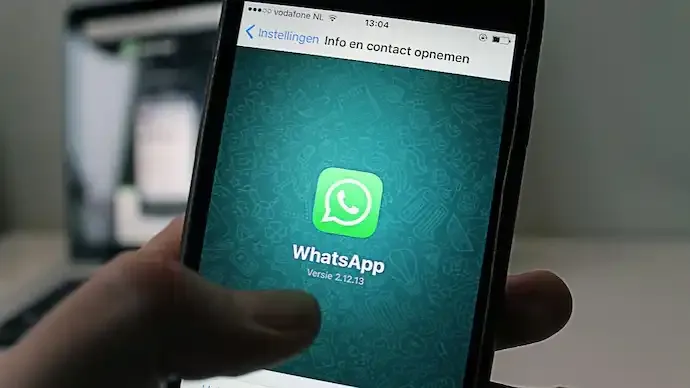Shopping cart
Your cart empty!
Terms of use dolor sit amet consectetur, adipisicing elit. Recusandae provident ullam aperiam quo ad non corrupti sit vel quam repellat ipsa quod sed, repellendus adipisci, ducimus ea modi odio assumenda.
Lorem ipsum dolor sit amet consectetur adipisicing elit. Sequi, cum esse possimus officiis amet ea voluptatibus libero! Dolorum assumenda esse, deserunt ipsum ad iusto! Praesentium error nobis tenetur at, quis nostrum facere excepturi architecto totam.
Lorem ipsum dolor sit amet consectetur adipisicing elit. Inventore, soluta alias eaque modi ipsum sint iusto fugiat vero velit rerum.
Sequi, cum esse possimus officiis amet ea voluptatibus libero! Dolorum assumenda esse, deserunt ipsum ad iusto! Praesentium error nobis tenetur at, quis nostrum facere excepturi architecto totam.
Lorem ipsum dolor sit amet consectetur adipisicing elit. Inventore, soluta alias eaque modi ipsum sint iusto fugiat vero velit rerum.
Dolor sit amet consectetur adipisicing elit. Sequi, cum esse possimus officiis amet ea voluptatibus libero! Dolorum assumenda esse, deserunt ipsum ad iusto! Praesentium error nobis tenetur at, quis nostrum facere excepturi architecto totam.
Lorem ipsum dolor sit amet consectetur adipisicing elit. Inventore, soluta alias eaque modi ipsum sint iusto fugiat vero velit rerum.
Sit amet consectetur adipisicing elit. Sequi, cum esse possimus officiis amet ea voluptatibus libero! Dolorum assumenda esse, deserunt ipsum ad iusto! Praesentium error nobis tenetur at, quis nostrum facere excepturi architecto totam.
Lorem ipsum dolor sit amet consectetur adipisicing elit. Inventore, soluta alias eaque modi ipsum sint iusto fugiat vero velit rerum.
Do you agree to our terms? Sign up

In a quiet corner of Bihar, a few small community libraries may have discovered India’s most unexpected weapon against the country’s growing fake-news epidemic. Here, children are learning something rarely taught in schools — how to question what they read and verify what they share.
Every morning, millions of Indians receive forwarded messages on WhatsApp — from health tips to political claims — without verifying their authenticity. According to the Reuters Institute Digital News Report 2024, 71% of Indians get news online, and nearly 49% depend on social media. Platforms like YouTube (54%), WhatsApp (48%), and Facebook (35%) dominate news consumption, making India one of the most social-media-driven news markets globally.
Amid this environment of unchecked sharing, a small but powerful experiment in Bihar is showing results that could reshape how India tackles misinformation.
Between November 2023 and March 2024, a study titled “Countering Misinformation Early: Evidence from a Classroom-Based Field Experiment in India” — conducted by researchers from IIM Udaipur and published in the American Political Science Review — tested the impact of media literacy training among 13,500 students across 583 villages.
The program took place in 100 community libraries, involving students aged 13–18 from classes 8 to 12. Over four months, children learned to evaluate the credibility of news sources, identify misinformation, and rely on scientific reasoning rather than viral claims.
The results were striking. Students who underwent the training became significantly better at distinguishing true from false information, and even their parents adopted more critical media habits. The positive effects remained measurable months after the program ended.
This transformation wasn’t about simply saying, “Don’t believe WhatsApp forwards.” It was about building a mindset — one that asks, “Where did this come from? Is it credible?”
India’s fake news crisis is not a fringe issue — it’s a national concern.
According to the Press Information Bureau (PIB), over 68,000 fake or questionable news queries were raised since 2022, with 1,575 confirmed misinformation cases.
A Social & Media Matters survey, Don’t Be a Fool 3.0, found that 78.9% of first-time voters had encountered fake news online.
Studies by the London School of Economics and CyberPeace Foundation revealed that misinformation in India is often politically motivated, with over 77% of fake stories spreading via social media.
The problem isn’t just digital — it’s social. From election rumours to health hoaxes and mob violence, misinformation shapes public perception and influences national discourse.
Despite these alarming trends, media literacy is still not part of India’s core school curriculum. While fact-checking portals like Alt News, Factly, and PIB Fact Check work tirelessly to debunk falsehoods, their efforts remain reactive — correcting misinformation after it spreads.
What India needs is a proactive, classroom-based solution — one that instills critical thinking and skepticism in children early on.
Experts suggest that if media literacy were integrated into schools nationwide, it could trigger a ripple effect: informed children influencing families, and families strengthening community-level awareness.
Here’s what an effective media literacy movement could look like:
Start Early: Introduce questioning and verification modules from middle school.
Make It Practical: Use real-world WhatsApp messages, viral videos, and news stories to analyze truth vs. misinformation.
Engage Families: Encourage children to discuss learnings with parents, creating a multiplier effect.
Promote Scientific Thinking: Highlight how misinformation affects public health, elections, and social harmony.
Support Fact-Check Ecosystems: Teach students about credible sources like PIB Fact Check and certified portals.
Scale Nationally: Train teachers, design multilingual materials, and measure learning outcomes.
With over 400 million WhatsApp users in India, misinformation has become part of daily life. But Bihar’s initiative shows that education — not censorship — may be the key to change.
If young people are taught to pause, question, and verify before they forward, India could transform from one of the world’s biggest misinformation markets to a model for digital discernment.
The journey from share to check begins in the classroom. In a democracy built on information, truth itself depends on education.
14
Published: Oct 30, 2025